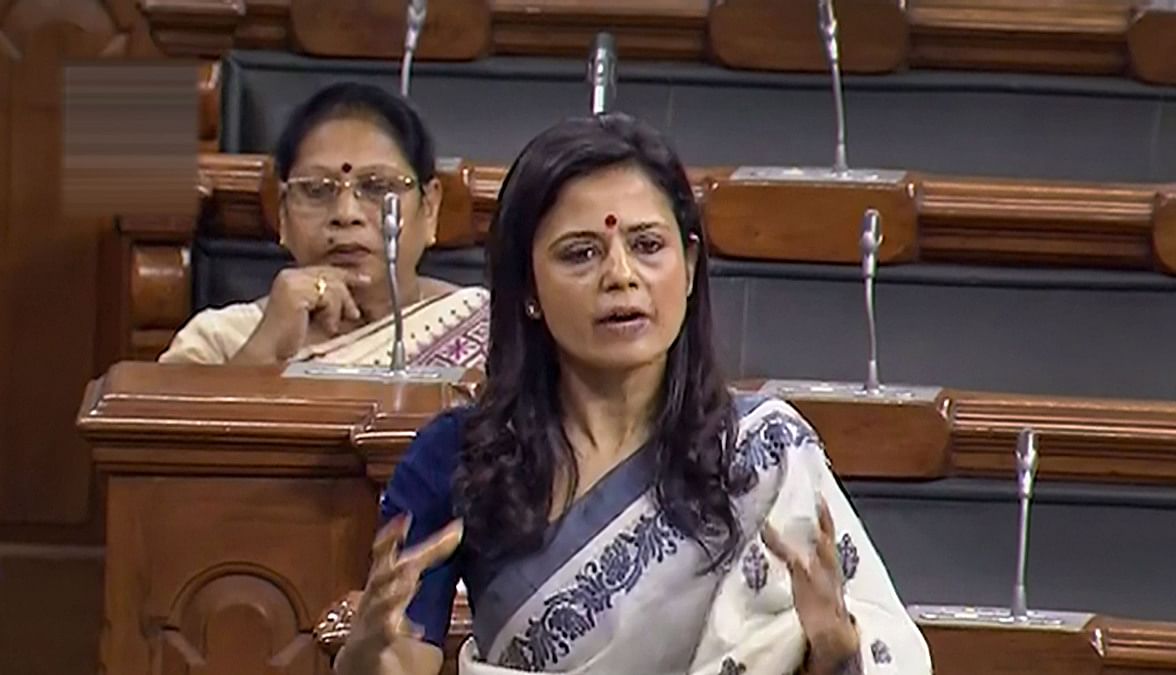The past few years have seen the rise of the powerful female politician. Women such as New Zealand Prime Minister Jacinda Ardern, United States Congresswoman Alexandria Ocasio-Cortez, and Indian Member of Parliament Mahua Moitra have drawn both immense praise and immense criticism from all over the world. While it is exciting to see women like Ardern, Ocasio-Cortez, Moitra, as well as US Vice President-elect Kamala Harris and the late US Supreme Court Justice Ruth Bader Ginsburg, as political stars and feminist icons, it is important to also consider the downsides of placing them on a pedestal and holding them to impossibly high standards, as often tends to happen with icons.
Holding women to impossibly high standards takes away their humanity, turning them into heroes who can seemingly do no wrong.
While it is exciting to see women like Ardern, Ocasio-Cortez, Moitra, as well as US Vice President-elect Kamala Harris and the late US Supreme Court Justice Ruth Bader Ginsburg, as political stars and feminist icons, it is important to also consider the downsides of placing them on a pedestal and holding them to impossibly high standards, as often tends to happen with icons.
Also read: Of Statues And Pedestals In Public Spaces: Society’s Reflections In Stone
These leaders and politicians are seen as powerful and hailed as a breath of fresh air among a sea of staid male politicians, and thus, put on a pedestal especially by young people who have lost faith in traditional politics. Newspapers report that 30-year-old Ocasio-Cortez, the youngest Congresswoman to ever be elected, ‘speaks the language of now’ and ‘understands democracy better than Republicans do’. By becoming the first Black and South Asian Vice President-elect, Senator Kamala Harris has broken several glass ceilings and is seen to represent the diversity and ‘changing demographic of the US electorate’. The late US Supreme Court Justice Ruth Bader Ginsburg was lauded for her fair and balanced insights and for standing on the rights side of justice.
On the other side of the world, New Zealand PM Jacinda Ardern is seen as an example of the proverbial woman who can have it all. Fans and critics alike were sceptical after Ardern announced her pregnancy and then the birth of her daughter in 2018, but all criticism was unfounded when she bounced back after giving birth. The fact that Ardern brought her daughter to her workplace—in this case, the United Nations General Assembly—was lauded as a strong statement in favour of ensuring proper childcare. The speech by Indian MP Mahua Moitra from the Trinamool Congress Party in the Lok Sabha pointing out the rising fascism in Indian democracy went viral in 2019. Netizens applauded her impassioned speech and courageous stand against the ruling government and its policies, but right-wing sympathisers also levelled allegations of plagiarism on Moitra (which both Moitra and the author she was accused of plagiarising from, denied).

But however impressive these women’s achievements are, the act of swiftly putting them on a pedestal is problematic. It is a trope that people all over the world are all too comfortable with and all too ready to accept. Women have historically been, and continue to be, seen in binaries—either they are promiscuous and evil, or they are pure, innocent, and must be protected. Never are they seen as human and well-rounded people in the same way that men are.
By placing these women on a pedestal and putting them on a position of moral and ethical superiority, we often tend to ignore the fact that they are, in fact, human and capable of making mistakes just like other people. They are seen as infallible and perfect, and if they do slip up, they will be quick to be seen as failures, betraying what they stand for, and disappointing those that believe in them. Even Ocasio-Cortez’s fans are quick to express their rage and disappointment when they see her making ‘mistakes’, such as backing Democratic Presidential candidate Joe Biden after initially supporting Bernie Sanders’ campaign. Detractors of Moitra and Ardern love to pull up facts and incidents unrelated to their work while criticising them in order to undermine their efforts and legitimacy as leaders.
This is not to disregard, however, accountability: people, especially politicians (even when they are women), must be held accountable for their actions and must be answerable to the public for the decisions they make on their behalf. It is important to call leaders and politicians such as the women mentioned above for their actions, otherwise it creates an unhealthy culture of hero-worship that is quick to put people on a pedestal and dismisses everything that could be wrong and needs to be addressed.
However, for female politicians, the issue is often not one of accountability, but rather of frivolous criticism. Even when they are lauded for their political sensibility and sympathy, their detractors are ever-ready to bring them down and disregard their efforts by bringing up ‘problematic’ things that they have done, such as old tweets, or paying too much for a haircut, or having studied abroad.

This is also interesting because those who oppose the feminist movement and gender equality often take this ‘failure’ of putting women on a pedestal as an opportunity to disparage the movement as a whole. The failure of ‘powerful’ women is seen as the failure of feminism as a whole. However, what is not considered is the fact that these are women who have struggled in a patriarchal society which continues to seek their failure in order to re-establish itself.

For instance, the appointment of Google alum Marissa Mayer as the CEO of Yahoo! in 2012 was hailed by many as an example that women are making greater strides in closing the gap between them and their male counterparts in tech and leadership. However, soon after her appointment, think pieces and opinion editorials started cropping up criticising Mayer’s leadership through thinly-veiled sexist remarks.
While Yahoo! was indeed struggling before her appointment, Mayer’s tenure as its Chief Executive Officer was marred by scandals, layoffs and, ultimately, a USD 4.8 billion sale to Verizon that led to her resignation in 2017. Mayer became known as Yahoo’s first female CEO, but also its last-ever CEO—and her tenure is seen as a failure of female leadership in trying to resuscitate a drowning company. Mayer’s story became known as a classic example of the ‘glass cliff’ phenomenon, in which a woman is appointed to a high-profile leadership position during times of trouble for a company, thus setting her up for criticism and failure in the event that the company does not do well.
The story is starkly different for men in leadership positions—they are allowed to make mistakes, be unlikeable and obnoxious, and still ensure that people will look up to them and see them as idols worth emulating. They are worshipped for being aggressive, ambitious, and capable, even when women who exhibit the same tendencies and traits are not. Their faults are more easily forgiven and forgotten, they are given hundreds of millions of dollars in payouts and graceful exits, they are re-elected to office multiple times. They are not at the receiving end of articles analysing their choice of shoes or parenting techniques. The same courtesy is not extended to women.
This is especially problematic when we realise that women do not have may female heroes to look up to, leading us to glorify and pedestalise the few that we do have. They are thus expected to be likeable, make all the right political and social decisions, and be seen as role models for other girls and women who want to grow up seeing a female leader as a normalised position.
The problem is also that since women like Ardern, Harris, Ocasio-Cortez, Moitra, or Mayer are part of the select few women who are visible female public figures, as they are put on a pedestal, they are expected to be everything to everyone. This is especially problematic when we realise that women do not have may female heroes to look up to, leading us to glorify and pedestalise the few that we do have. They are thus expected to be likeable, make all the right political and social decisions, and be seen as role models for other girls and women who want to grow up seeing a female leader as a normalised position.
Also read: Women In Media & Politics: Reclaiming Representation Beyond Tokenism
When considering female leaders, it is important to view them as humans who are capable of making mistakes and are not perfect. They cannot be everything to everyone, just as male leaders cannot cater to everyone and be right all the time.
When we take the pressure to be perfect away from women, we stop seeing them as ‘bossy’ or ‘b*tchy’ or ‘domineering’ or superhuman. We begin to see them as they are—flawed, imperfect leaders who should be held to equal standards.
Rutvi Zamre is an English graduate with an interest in media and gender, based in Delhi. She currently works as a Teaching Fellow at Ashoka University. She can be found on Twitter, Instagram and LinkedIn.




